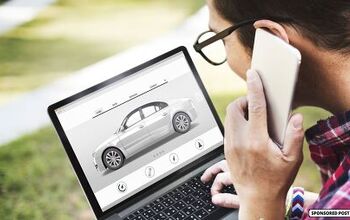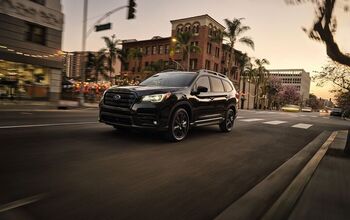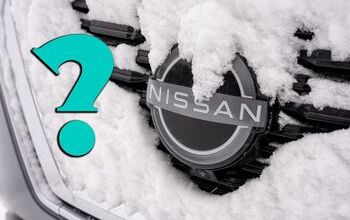VIN Lookup 101

Every vehicle has a story, and before you pull the trigger on any pre-owned car, truck, or SUV, a VIN lookup can help you learn what that story is.
Unfortunately, not all sellers are entirely forthcoming when it comes to a vehicle’s history. Whether you’re buying from a used car lot or a private individual, there’s no good way of knowing just how many chapters of the car’s story are being concealed – whether it’s been damaged by a flood or fire, whether it was badly damaged in a crash and hastily “fixed” without addressing underlying structural damage, or even whether it received regular oil changes. The answers to those questions might not be immediately obvious at a glance, and trying to tease that information out of a withholding seller, whose goal is to extract as much of your cash as he or she possibly can, is tough.
The fix is simple: performing a VIN lookup. Every mass-produced vehicle ever sold has a VIN, or “Vehicle Identification Number” – a unique sequence of letters and numbers that, much like a serial number on any other manufactured product, identifies precisely that vehicle. Granted, the digits of the VIN itself can only tell you so much: when and where a vehicle was manufactured, for example; who the manufacturer is; and some of its specifications. But the VIN is used by governments and businesses alike to identify the vehicle every time a significant event in its history is recorded. If a car is involved in a nasty crash, for instance, that accident is recorded to a database and tied to the car’s VIN so that future owners have access to an accurate, complete picture of the vehicle’s past.
So, knowing whether or not a used vehicle has been treated with care and attention, or crashed or flooded and given incomplete repairs, is often as easy as performing a VIN lookup.
How To Look Up A VIN Number
These days, with internet access never all that far away, performing a VIN lookup is quicker and easier than ever. First, find and take down the vehicle’s 17-digit VIN. This is typically found on a small metal plaque facing forward through the windshield, in the bottom corner next to the driver’s side A-pillar, although it’s also often printed on a sticker placed on the driver’s side B-pillar, visible whenever the driver’s door is open. You’ll know it’s the VIN from both the length of the sequence, and the fact that it contains a mix of letters and numbers.
Once you have the VIN, go to Bumper.com, type the VIN exactly as it appears into the search box, and click “Search”. The website will search for the vehicle based on the VIN and generate a range of options for the sort of information you’re interested in, such as ownership history, accidents, salvage, thefts, recalls, and market value, where available. Make your selections, click Submit, and Bumper will pull the available information from a range of sources to compile a customized, thorough report on the vehicle’s recorded history, which you will be able to view after signing up for an all-access membership. The whole process is fast, simple, and a whole lot less expensive than the bills you’ll face if you end up purchasing the wrong car.
And when we say that Bumper’s VIN lookup report is thorough, we do mean thorough.
What You Could Learn From A VIN Lookup
A Bumper VIN lookup report may contain information on just about every facet of a vehicle’s history, from odometer mileage to manufacturer recalls, from ownership history to sale history. You may be able to see how many past owners the vehicle has had, how much it was sold for in the past, and whether it’s ever been totaled by an insurer or received major repairs after an accident. A report from Bumper can even provide you with other helpful metrics like the current market value and the estimated future cost of ownership.
Photo By Solcan Design/Shutterstock
Specifications: At a minimum, a VIN lookup can confirm key specifics about a vehicle. The first three digits reveal the country of origin, the manufacturer, and the region. This portion can be decoded by just about anyone with access to an online search engine, but the rest of the VIN number is a bit more obscure. A VIN lookup with Bumper can decode those other digits for you, confirming the vehicle model, body style, powertrain, manufacturing plant, and year of manufacture. That’s of limited use to most people, but it could come in handy if, say, you’re curious whether the vehicle you’re looking at really has all-wheel-drive like the seller claims, or whether it’s truly the top-of-the-line trim level.
Ownership History: How many times has the vehicle changed hands in the last five years? Is the seller really the original owner, or did they purchase the car pre-owned? You could know after you’ve got your VIN lookup report in-hand; each time a vehicle is titled to a new owner, the title has to be transferred at the DMV, and this title transfer is recorded for future reference.
Sales Listing History: If there are vehicle sales listings still available, Bumper may be able to find them, round them up, and put them into your VIN lookup report if you so choose. This allows you to see how much the vehicle has been listed for everywhere that it’s been listed, and what images of the vehicle have been shared. You never know; it could turn out that the sale listing you found carried a higher asking price than one on another website. The more information you have going into a sale negotiation, the better prepared you are to make the best deal.
Salvage History: This is a big one: the vehicle’s salvage history. Has it been written off by an insurer? In other words, has it been so damaged in an accident, flood, fire, or other event that the insurer deemed it a total loss and issued a salvage title? You may assume you’d be able to tell a salvage vehicle from any other just by looking at it, but that’s not always a sure thing; some shops and private individuals have a knack for “rebuilding” a salvage vehicle to look good-as-new even though there might be questionable damage still lingering below the surface, and the only way to tell might be to have the title in-hand – or to perform a VIN lookup.
Accidents: Of course, even relatively minor accidents can have a lasting effect on the way a vehicle runs, drives, stops, and holds up over the years. “Small” fender benders can still bend critical components like control arms and tie rods, or leave behind cracked and peeling paint that allows the body to start developing rust. Having access to a complete accident history can give you a better idea of what to look out for when you go to inspect a pre-owned vehicle.
Photo By Piyawat-Nandeenopparit/Shutterstock
Thefts: Is the vehicle you’re looking to purchase stolen? While a relatively rare occurrence, it does happen, and it would be a shame if it turned out that your next vehicle was rightfully the property of someone else. But even if the vehicle isn’t currently separated from its rightful owner, it can be very helpful to know whether it’s ever been reported stolen. Stolen vehicles aren’t always treated with the utmost care, after all, and there’s no guarantee that a once-stolen vehicle hasn’t been abused, tampered with, or carefully stripped of some original equipment.
Recalls: Auto manufacturers frequently issue recalls to address issues relating to vehicle safety, premature part failure risks, and issues with manufacturing. No automaker is exempt, and when those recall notices go out, it falls to the owner to act, taking the vehicle in to have the recall service performed. Needless to say, some owners are more on top of things than others, and if you’re purchasing a pre-owned vehicle, you’ll want to make sure that any recall issues have been addressed.
Market Value: One of the ways that Bumper’s VIN lookup reports stand out is their comprehensive vehicle market information. A report from Bumper can give you access to accurate current market value data, based on recent sales listings for similar cars in your area, as well as a five-year cost-of-ownership estimate generated using real data relating to expected depreciation, repair costs, maintenance, and fuel and insurance costs, so you know what you’re getting yourself into before you buy.
The Bottom Line
Whether you’re shopping around for your next pre-owned vehicle, or you’re trying to figure out whether it’s a good time to sell your old family sedan, a VIN lookup report from Bumper can tell you everything you need to know to make an informed choice. In any vehicle sale negotiation, knowledge is power. You owe it to yourself to gather as much knowledge as you possibly can.
Head to Bumper.com right now to see what your VIN lookup reveals about your car.
Sponsored by Bumper.com
Feature Photo by By Alfa Photostudio/Shutterstock.com
We are committed to finding, researching, and recommending the best products. We earn commissions from purchases you make using the retail links in our product reviews. Learn more about how this works.

Aaron is a freelance writer, videographer and car enthusiast based out of the Detroit area. He has a special affinity for the Porsche 944 series, and once owned a Volvo 240 sedan with a Weber carb in place of the factory EFI system. His work has appeared on AutoGuide, GM Authority, /Drive, and VW Vortex, among other sites.
More by Aaron Brzozowski



































Comments
Join the conversation
Total ripoff. What a joke!
Absolutely a joke! You can get almost as much information for free from other than look up sites and just searching the VIN number.